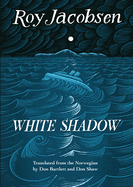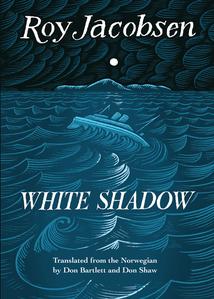
 Roy Jacobsen's White Shadow is the second in his Barrøy trilogy, following The Unseen, which introduced readers to the Barrøy family and the small Norwegian island that shares their name. White Shadow opens: "The fish came first. Man is merely a persistent guest." It is not a man but a woman, however, who occupies the center of the novel. Now in her mid-30s, Ingrid Barrøy works on the mainland, splitting and salting cod and herring. She "longed to be gone, to be back on Barrøy, but no one can be alone on an island and this autumn neither man nor beast was there, Barrøy lay deserted and abandoned, it hadn't even been visible since the end of October, but she couldn't be here on the main island either."
Roy Jacobsen's White Shadow is the second in his Barrøy trilogy, following The Unseen, which introduced readers to the Barrøy family and the small Norwegian island that shares their name. White Shadow opens: "The fish came first. Man is merely a persistent guest." It is not a man but a woman, however, who occupies the center of the novel. Now in her mid-30s, Ingrid Barrøy works on the mainland, splitting and salting cod and herring. She "longed to be gone, to be back on Barrøy, but no one can be alone on an island and this autumn neither man nor beast was there, Barrøy lay deserted and abandoned, it hadn't even been visible since the end of October, but she couldn't be here on the main island either."
After paddling back to Barrøy, Ingrid is indeed alone amid the ruins of her family home, until the British bomb a German steamer carrying troops and prisoners of war in nearby waters. In her family's hayloft she finds a man alive. They do not share a language, but they share much. Hiding her guest from the Nazis and their Norwegian collaborators will send Ingrid away from home again, and it will be another arduous feat to return, but it is always Barrøy for this stalwart protagonist. She stands "suddenly wonderstruck at all the things that had kept her on the island, which in truth were nothing at all."
Translated from the Norwegian by Don Bartlett and Don Shaw, Jacobsen's prose is as stark and unadorned as the landscape he portrays. His characters are hardworking, worn and stoic against a ruthless natural world, but there is beauty in their strength, and in the harsh simplicity of island life. "It is as it has always been, Barrøy has everything yet lacks something of real importance." The central setting is limited in its scope, but in Ingrid's travels she meets a variety of characters, including profiteers and refugees, eventually repopulating her home and tentatively, perhaps, building something new.
While there is a thread of romance here, White Shadow is more a profile of an individual and a culture ("people who never sat down"). It is also a sensory experience of rough conditions and cold, work ethic and strong ties. Ingrid's community is hard-won and all the sweeter for it. No familiarity with The Unseen is necessary for this second installment, which stands alone comfortably, although the final lines do gesture at questions about the future of Barrøy. --Julia Kastner, librarian and blogger at pagesofjulia
Shelf Talker: This second in a gripping trilogy of home, place and relationships sees a woman struggle alone, and then less alone, in World War II Norway.

